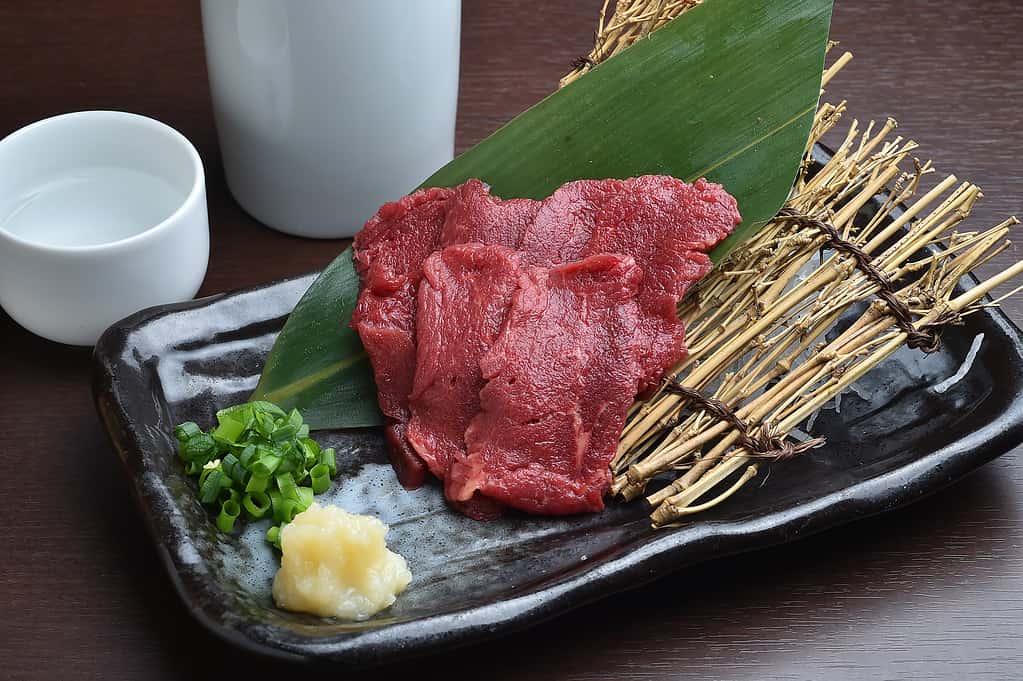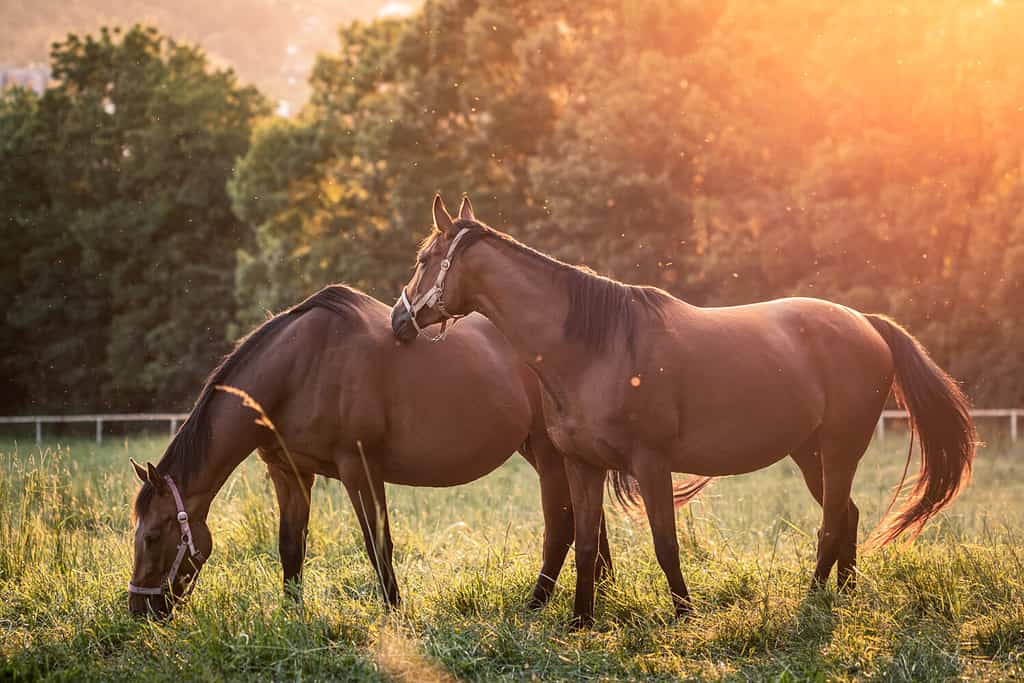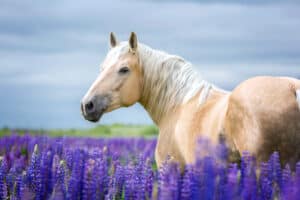Horse meat is actually a significant part of the diet of many countries and cultures around the world. For most of human history, before the domestication of animals, horses were hunted for their meat alongside other animals, so horse meat isn’t as foreign or strange as many people think. With sweet and nutritious meat, horses are a popular ingredient around the world. However, horse meat still might be new to you, so we prepared this list of the pros and cons of eating horse meat
Horse meat in North America is still a rare and often off-putting idea. While it might seem strange, it is more common in the rest of the world than you might expect. For that reason, we created this list to help you understand why so many people enjoy horse meat, and why you might actually enjoy it. While you might not be ready to try this tasty meat, at least you might understand why it’s so popular.
These are the pros and cons of including horse meat in your regular meat diet.
The Pros of Eating Horse Meat

Raw horse meat, served sashimi-style, with sake. This is a Japanese delicacy.
©hanasunrise/iStock via Getty Images
Horse meat is healthier than other red meats
The most common red meats in our diet are typically unhealthy. Beef from cattle farms is filled with hormones and chemicals not meant for human consumption. It is also very high in cholesterol and fat. It is prone to many diseases and bacteria that have found ways to thrive in the most common meats in our diet.
Horse meat is lean. It contains a comparable amount of protein to beef and pork, with far less fat. Mineral and vitamin amounts are also comparable, but has far less niacin than beef or pork. Niacin has been shown to increase the risk of developing diabetes. Horse meat also has much more retinol (Vitamin A) than beef, which is essential to skin health, and Omega-3 fatty acids. Also, the fat contained within horse meat, while lower overall, is also healthier than the fat in beef or pork, having less saturated fat.
Pound for pound, horse meat is a much healthier choice than typical farm-raised beef and pork. If you have the option between beef or horse, you’ll most likely be better off choosing the latter.
Horse Meat Can Help The Environment
This is particularly true in North America, where horses aren’t a native species. With no natural predators, herds of wild horses can destroy habitats and crowd out other species, threatening their populations.
While horse hunting is not allowed in the United States, if the taste for horse meat catches on, this might become a popular option during hunting season. Currently, the US Government is unable to control the wild horse population. Yet, it still spends hundreds of millions of dollars trying to keep it in check. Including hunters in the mix would go a long way to preserving our natural wilderness.
Horse Meat Has a Unique and Appealing Taste
Those who eat horse meat compare it to beef but with a leaner, sweeter taste. This makes it a popular recipe for many people around the world.
In fact, if you eat anywhere abroad, it is not unusual to find dishes with horse meat on the menu, especially in nicer restaurants.
There are many dishes around the world that include horse meat as its primary ingredient. If you don’t want to consume horse meat, you are depriving yourself of many culinary treats! These include basashi and sakuraniku in Japan, Polpette di cavallo in Italy, manti dumplings in Kazakhstan, kazy horse sausage in Uzbekistan, horse tartar in Canada, and horse steaks and burgers in Europe.
Basashi is a Japanese dish with thin slices of raw horse meat, prepared similarly to sashimi (if you are a sushi fan). This is considered a delicacy in Japan.
Polpette di cavallo are meatballs made with horse meat instead of beef or veal. They are particularly popular street food in southern Italy. These meatballs can be prepared with parmesan and lemon, leading to a very tasty mid-day snack.
Kazakhstan has many popular dishes that incorporate horse meat. In fact, Kazakhstan is one of the top five consumers of horse meat, and the second top producer of horse meat. This country has a very long history of nomadic horse tribes, and their culture is inseparably intertwined with horses. So, it makes sense that horses would make up a large part of their diet.
If you visit any of these countries, be prepared to taste some amazing horse dishes, especially if you don’t want to offend your host!
Cons of Eating Horse Meat

Many countries and cultures see horses as companion animals, making their meat taboo to eat.
©encierro/Shutterstock.com
Selling Horse Meat is Illegal Within The United States
Currently, it is illegal to slaughter and sell horse meat within the United States (even though the United States is one of the top producers of horse meat for international markets).
United States federal law prevents horse meat from being sold or shipped without USDA inspection. However, since there is no legal system for which horse meat can be inspected, this effectively outlaws the meat. Additionally, serving or eating horse meat is illegal in Massachusetts, Rhode Island, Delaware, and Hawaii.
If you have your own horse, however, or have a friend whose horse just happened to die recently, you can prepare and eat the meat without worry. (Provided you don’t live in any of the aforementioned states).
Horse Meat Might Carry Toxins Not Fit For Human Consumption
Domesticated horses, those used for riding or work, are usually treated with medications that don’t take human consumption into account. For this reason, most horses that die in North America are not safe to eat. Wild horses, horses not treated with medication, and horses raised especially for consumption can be eaten safely, but you will have to do your homework before you dig in, just to be safe.
Most of the horses put down in North America are euthanized. The chemicals used to euthanize the horses are dangerous to humans. So, even if a horse wasn’t treated with unsafe medications, the meat will still be dangerous.
Eating Horse Meat is Still Taboo in Many Places
People in the United States, United Kingdom, Australia, and Greece have a particularly strong cultural taboo surrounding the consumption of horse meat. In all these countries, horses are seen as companions, so eating them is akin to eating a pet dog or cat. Taboos about consuming horse meat are also present in Chile and Argentina.
Ironically, horse meat is popular and widely available in supermarkets in Canada (especially in the French-speaking areas). Whereas opposition to its consumption is particularly strong in the United States. Every few years, controversy about the consumption of horse meat with make headlines in the United States. Activism and panic often motivate thousands to sign petitions against it and cause lawmakers to propose stronger legislation to prevent it.
One of the main reasons horse meat is taboo, especially in poorer places, is because horses are not as efficient in turning grass into meat. Other animals like cows and pigs, make better use of the feed they are given and yield more meat, making them cheaper and easier to raise.
Horse meat is not kosher, being forbidden in Jewish scripture and Jewish dietary laws. Horse meat is forbidden by Jewish dietary laws.
Islam does not forbid the consumption of horse meat but strongly recommends abstaining from it.
Horse meat used to be prohibited by the Catholic church. There is no law today for any major Christian religion regarding the consumption of horse meat.
The photo featured at the top of this post is © hanasunrise/iStock via Getty Images
Thank you for reading! Have some feedback for us? Contact the AZ Animals editorial team.







